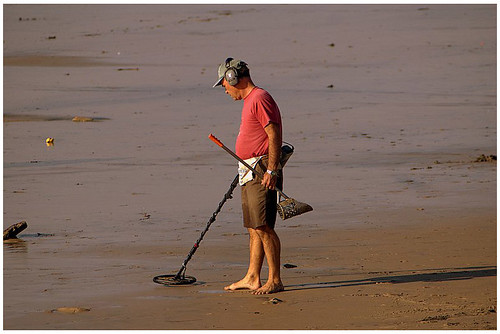JEFFREY GETTLEMAN writes in the NY Times (Published December 28, 2006) - NAIROBI, Kenya, Dec. 27 — The Islamist forces who have controlled much of Somalia in recent months suddenly vanished from the streets of the capital, Mogadishu, residents said Wednesday night, just as thousands of rival troops massed 15 miles away.
In the past few days, Ethiopian-backed forces, with tacit approval from the United States, have unleashed tanks, helicopter gunships and jet fighters on the Islamists, decimating their military and paving the way for the internationally recognized transitional government of Somalia to assert control.
Even so, the Islamists, who have been regarded as a regional menace by Ethiopia and the United States, had repeatedly vowed to fight to the death for their religion and their land, making their disappearance that much more unexpected.
Fortified checkpoints across the city — in front of the radio station, at the airport, at the main roads leading into Mogadishu and outside police stations — were abruptly abandoned Wednesday night, residents said.
Many of the teenage troops who made up the backbone of the Islamist army had blended back into the civilian population, walking around without guns or their trademark green skullcaps.
The sudden reversal left it unclear whether a war that had threatened to consume the Horn of Africa had quickly ended, or the Islamists had merely gone underground, preparing to wage a guerrilla insurgency, as some leaders had threatened.
“The whole city is just waiting,” said Sheik Ahmed Shiro, a Koranic teacher in Mogadishu.
At 10 p.m. on Wednesday, several Islamist leaders emerged to hold a news conference at their headquarters in Mogadishu. They did not explicitly concede defeat to the transitional government, but seemed to be preparing their forces for such an eventuality. “We need our soldiers to return to their positions for the sake of the people,” said Sheik Sharif Sheik Ahmed, one of the leaders. “Even if your positions are transferred to the government, you must stay where you are and make sure Mogadishu is as safe as it was before.”
As he spoke, Mogadishu was rapidly descending back into the clan-based anarchy that had been its hallmark for most of the past 15 years, before the Islamists came to power and pacified the city.
Witnesses said bands of armed thugs swept through the markets, smashing and stealing at will. Gunfire rattled from neighborhood to neighborhood as the disparate clan-based militias that had joined forces to form the Islamist movement began to fragment and turn on one another.
With the war going badly for them, clan elders had been rapidly losing faith in the Islamist leaders, residents said. The quick defeat the Islamists suffered earlier on Wednesday at Jowhar, the last major town on the road to Mogadishu, seemed to be the final straw.
The Islamists started out as a grass-roots movement of clan elders and religious leaders who banded together earlier this year to rid Mogadishu of its notorious warlords, earning them a lot of public support.
But much of that good will seems to have been sapped by their decision to go to war against the transitional government and the Ethiopian forces protecting it.
The Islamists attacked Baidoa, the seat of the transitional government, on Dec. 20; a few days later, they announced that Somalia was open to Muslim fighters around the world who wanted to wage a holy war against Christian-led Ethiopia.
That provoked a crushing counter-attack by the Ethiopians, who command the strongest military in East Africa. For the past week, the Islamists have lost one battle after another, their adolescent soldiers no match for a professional army.
By Wednesday, the Islamists were cornered. Thousands of troops from the transitional government were closing in on the seaside capital from two directions.
Mogadishu was coming unhinged. The ports and airports had closed, leading to a shortage of just about everything, sending prices for food, medicine and fuel skyward. A gallon of gas in Mogadishu now costs $8.
The once feared Shebab, the devout young Islamic fighters, began deserting in droves. (Shebab is the Arabic word for youth.) “We can’t resist,” said Musa Abdullahi, an 18-year-old Shebab who quit his unit after half his comrades were cut down by Ethiopian helicopter gunships. “We thought this fighting would be like the others. It’s not.”
Ahmed Nur Bilal, a retired Somali general, said the war had been a horrible miscalculation.
One of the first things the Islamists did after the fighting started was to close all schools in Mogadishu in order to send more young people to the front. “They’ve misled our children to their deaths,” Mr. Bilal said.
Residents said that crowds in one slum threw rocks at the Islamists’ pickup trucks as they drove by on Wednesday. Some people openly celebrated in the streets by hoisting up pictures of the transitional government’s leaders and gleefully chewing khat, a mildly narcotic plant the Islamists had outlawed.
The demonstrations helped prompt the clan elders, who are regarded as the pillars of Somali society, to act. According to residents in Mogadishu, the leaders of several major clans — and some businesspeople who had been financing the Islamists — demanded that the Islamist leaders return the armed pickup trucks that had been lent to the movement.
Faced with the loss of support from their counterparts, other clan leaders saw the coalition begin to crumble and withdrew their trucks as well, leaving little of the organized force that once lent the Islamists their power.
One adviser to Western diplomats who has close contacts with both the Islamists and the transitional government described the unraveling as an “organic process that rose up from the people, in an unorganized way, Somali style.”
Disappointment in the Islamists, however, does not necessarily translate into widespread enthusiasm for the transitional government, which until last week had been considered weak and divided by many Somalis. Thousands of people in Mogadishu, a war-weary city of two million, have begun to pack up and leave, residents said, afraid not only of the possibility of heavy urban fighting but also of a return to warlord rule, which kept Mogadishu in anarchy for years.
The transitional government has sent mixed signals about what it plans to do next.
Until now, Mogadishu had been considered too dangerous as a headquarters for the transitional leaders, themselves a mix of clan elders and former warlords. But transitional government leaders have always said they eventually planned to base their government in the capital, and this week they vowed to keep fighting until Mogadishu was theirs.
Several Mogadishu residents said on Wednesday night that they expected the Ethiopian-backed forces to march into the city at dawn. That has been a pattern since the fighting began, with the Islamists retreating from cities across Somalia during the night and the transitional government troops arriving in the morning. But some analysts believe there will be a few days of negotiations before that happens.
Ethiopian officials have said that occupying Mogadishu is not part of their plan. But they have also said that rooting out Islamist extremists is their priority. Ref: NY Times







